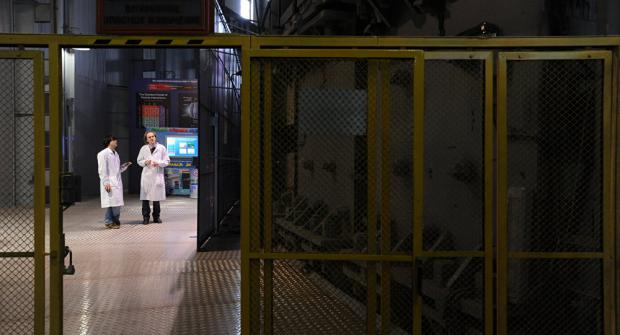
Breaking News
 BACKWARD ROLLING CONFIRMED: 1,624 Contracts Just Demanded Delivery NOW ($100 Silver is Inevitable)
BACKWARD ROLLING CONFIRMED: 1,624 Contracts Just Demanded Delivery NOW ($100 Silver is Inevitable)
SEMI-NEWS/SEMI-SATIRE: January 11, 2026 Edition
 "Appalling": Debanking Explodes To Record High In Britain
"Appalling": Debanking Explodes To Record High In Britain
 MTG explodes in astonishing f-bomb laden tirade as Trump orders Secret Service probe:
MTG explodes in astonishing f-bomb laden tirade as Trump orders Secret Service probe:
Top Tech News
 World's most powerful hypergravity machine is 1,900X stronger than Earth
World's most powerful hypergravity machine is 1,900X stronger than Earth
 New battery idea gets lots of power out of unusual sulfur chemistry
New battery idea gets lots of power out of unusual sulfur chemistry
 Anti-Aging Drug Regrows Knee Cartilage in Major Breakthrough That Could End Knee Replacements
Anti-Aging Drug Regrows Knee Cartilage in Major Breakthrough That Could End Knee Replacements
 Scientists say recent advances in Quantum Entanglement...
Scientists say recent advances in Quantum Entanglement...
 Solid-State Batteries Are In 'Trailblazer' Mode. What's Holding Them Up?
Solid-State Batteries Are In 'Trailblazer' Mode. What's Holding Them Up?
 US Farmers Began Using Chemical Fertilizer After WW2. Comfrey Is a Natural Super Fertilizer
US Farmers Began Using Chemical Fertilizer After WW2. Comfrey Is a Natural Super Fertilizer
 Kawasaki's four-legged robot-horse vehicle is going into production
Kawasaki's four-legged robot-horse vehicle is going into production
 The First Production All-Solid-State Battery Is Here, And It Promises 5-Minute Charging
The First Production All-Solid-State Battery Is Here, And It Promises 5-Minute Charging
 See inside the tech-topia cities billionaires are betting big on developing...
See inside the tech-topia cities billionaires are betting big on developing...
Harnessing the Power of Siberia: Physicists Creating Matter-Antimatter Collider

Budker Institute of Nuclear Physics Deputy Director Yevgeny Levichev discussed Russian physicists' ambitious plans with Russia's RIA Novosti news agency on Tuesday.
The Institute plans to create the Super Tau Charm Factory, a particle accelerator which would study the collision of beams of electrons (matter) and positrons (antimatter) in an effort to help to identify phenomena and processes beyond the Standard Model of particle physics.
Commenting on the progress that has been made in the construction of the nuclotron-based ion collider project at Dubna, Levichev noted that this was the first of six government-approved mega-science projects to receive funding. "This gives rise to hopes that our project too will be implemented," he said.
The physicist explained that during their work on the Dubna project, he and his fellow scientists have discussed the prospects of uniting the efforts of all of Russia's physics institutes to help implement these kinds of projects. "I hope that by uniting, we will have a greater capability to push projects through," Levichev noted.

 Storage doesn't get much cheaper than this
Storage doesn't get much cheaper than this

